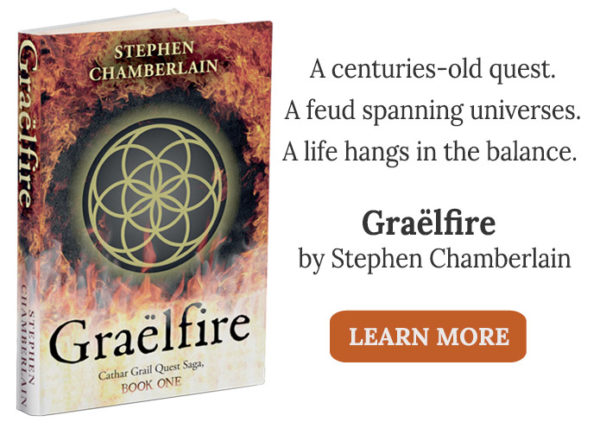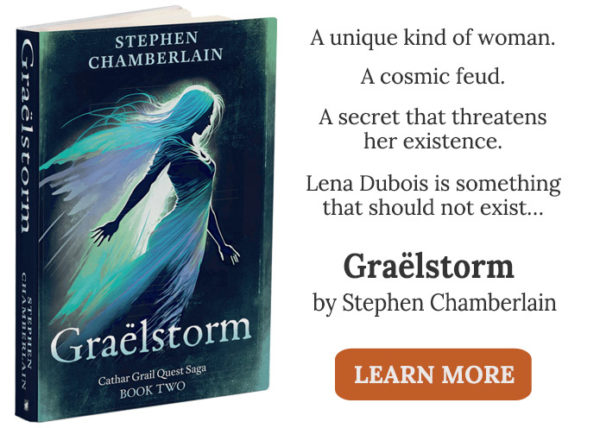“Life is the art of drawing without an eraser.” — John W. Gardner
Make No Mistake
Nobody wants to make mistakes. But at least when we draw, we have erasers to undo them. Sadly, life isn’t like that. Our choices and actions are fixed in time. We can express remorse. We can make amends. But we can’t turn back the clock and undo what has happened. Sometimes bridges are burnt—consequences are irreversible.
Mistakes are part of everyday life. As the saying goes, “To err is human…” And yet the pressure to succeed is constant. There is stress over grades, pressure over jobs, anxiety over bodies and relationships. It seems everybody has a fear of failure, and nobody wants to be embarrassed for making a mistake. Mistakes and failure are considered bad.
Learning by Experience
Oscar Wilde had a different perspective. He said, “Experience is simply the name we give our mistakes.”
Fiction is the epitome of learning by experience. Some of our best-loved stories are about characters that learn from their mistakes or rise above their limitations and failures: the bad become good; the weak become strong; losers become winners. We adore the downtrodden that rise to the top and the sucker who transcends his folly.
Take Dickens’s Ebenezer Scrooge. At the beginning of A Christmas Carol, Scrooge is a reviled, tightfisted and uncaring man until three Ghosts of Christmas show him the error of his ways and the consequences of his avarice. The next morning, he grabs the opportunity of a second chance and transforms into the most generous man in London Town.
Personal Transformation
Stories explain how it’s not our errors and failures that define us, but what we learn from them. Charles R. Swindoll summed it up like this: “All of us have bad days, but life is 10% what happens to us and 90% how we react to it.” In other words, destiny has less to do with our negative experiences than how we handle them. It’s about how life’s experiences change us.
This gets to the heart of what makes a good story. Take Tolkien’s The Hobbit. Bilbo Baggins leaves the Shire a timid little hobbit on a dangerous quest that transforms him into a brave and adventurous hero. One of the most memorable extracts is this piece of foreshadowing:
Gandalf: “You’ll have a tale or two to tell when you come back.”
Bilbo Baggins: “You can promise that I will come back?”
Gandalf: “No. And if you do, you will not be the same.”
Why We Tell Stories
Everyone is fallible, and flawed characters make compelling reading when personal transformation is the meat of the story. From Beowulf and the Odyssey to Star Wars, such “hero’s journeys” allow us to travel the world and beyond in a character’s shoes and learn lessons from their adventures. That’s what stories are for: not to erase our bad experiences but to share them—to see life through someone else’s eyes and engage in the world in which they live. We don’t want our heroes to be perfect human beings; we don’t wish them an easy ride. We want to watch them face adversities they couldn’t foresee and grow through their setbacks and disappointments.
Setbacks make us care about characters. They make us feel as though we’re sharing their lives. That’s why books offer an experience unrivalled by other storytelling mediums like movies and art. We are spectators when we watch a movie, whereas books give us access to the characters’ thoughts. We see life from their point of view.
Never Judge a Book By Its Cover
Some might dismiss fiction as a flight of imagination—a diversion from the issues of the real world. But Albert Camus maintained that, “Fiction is the lie through which we tell the truth.” In other words, stories are mirrors that writers construct to reflect universal themes and messages. Here are some standout examples:
Harry Potter:
- Choose your friends wisely;
- Face your fears;
- People aren’t always what they seem.
The Hunger Games:
- Stand up for what you believe in;
- Play to your strengths;
- Hope is the greatest strength of all.
Lord of the Rings:
- Power corrupts;
- Greed is destructive;
- Loyalty isn’t grey—it’s black and white.
Strip away the action, and stories are treasure troves of accumulated wisdom. That’s why some are remembered for generations. They express meaning and purpose in experience.

Stephen Chamberlain is the author of the fantasy novel Graëlfire. He draws inspiration from the impact of landscape on myth, and the association of liminality with the supernatural and magic. Stephen lives in Switzerland.



